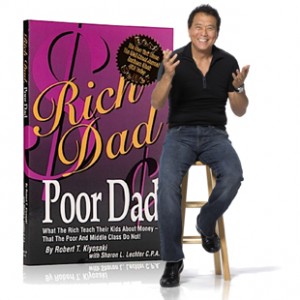Close To Me Map:
[WHAT I CAN’T LIVE WITHOUT]:
- Family – I come from a family where my parents never let us skip a family dinner. Each night, I was constantly surrounded by my parents and reminded of the importance of family. As an only child, my relationship with my parents is incredibly strong, and they are huge influencers within my life.
- Faith – Attending church also played an integral part of my upbringing. Mainly, my faith is something I cannot live without because my faith guides my actions and decisions. I strive to uphold Christian values by acting with integrity, treating others fairly, and loving those around me well.
- Friends – To put it simply, I can’t live without my friends because life without my best friends would just be boring.
- Technology (iPhone & Macbook) – As part of the millennial generation, my technology products (mainly my Apple products) are necessities in my life. I use them on a daily basis, and they help make me feel more connected to the world. Much of my day-to-day life involves use of these products, which means they play a pivotal role for me as a consumer in my search for products and services.
- Aspirations – When thinking critically about the things that I truly need to make it through each day, my goals and aspirations play an integral role in my daily life. The aspirations I have – predominantly those I hold for my own personal career – push me to wake up each day and exert effort in order to accomplish my goals and attain what I want out of life.
[WHAT I CARE ABOUT GREATLY]:
- Health – I was diagnosed with Rheumatoid Arthritis when I was only 18 months old, and it’s something I still face every day. If I didn’t make health and fitness a major priority in my life, the condition of my joints and my mobile abilities would be hindered. Throughout my years as a young adult, I have worked closely with the national Arthritis Foundation to share my story and advocate for the importance of exercise in overcoming your disease. I will care greatly about this for the rest of my life.
- Current Events – As someone who is about the enter the workforce, I believe it is my responsibility to society to be an active citizen and keep up with what is happening both in the U.S. and internationally. I care greatly about being informed on the latest happenings in politics, the economy, and the media.
- Fashion – As vain as it may sound, I have always loved clothing and fashion. Spending a summer studying retail marketing in Florence, Italy only grew this interest. I enjoy shopping the latest trends and drawing from the creativity of the fashion world.
- Beauty – Beauty is not about looking a certain way or fitting any societal mold. For me, I care about beauty because feeling beautiful means feeling confident. After working a marketing internship for the international beauty company L’Oreal, I saw first-hand the joy beauty and skincare products can bring to consumers. I care about these products simply because they instill confidence in me.
- Leadership Roles – I have always loved working with others and leading others. I care greatly about the leadership positions I hold in various organizations both on and off-campus.
- Travel – I have lived in multiple cities throughout my lifetime, so I care greatly about exploring new places and traveling as much as I can. I hope to work in a job that allows me to travel and interact with people and business across the country.
Digital Ecosystem Map:
- Web Search – When it comes to current events, I find out most information by watching nightly news-related programs on TV. As I hear about current events through this media source, I am simultaneously using the internet to search for more information about the events and news topics that grab my interest most. I use web search to find more information because of it’s high level of convenience, due in part to the search capabilities powered by my iPhone. When searching an event or news topic, I often utilize Google and will scroll through anywhere from two to five links about the topic depending on how much information I am hoping to obtain.
- National TV Broadcast Websites – If my web search for the news-related information did not provide me with the amount or depth of information I was looking for, then my next step is to head to the websites of the national TV broadcasts that I typically watch. I do this through my computer, and I often use this medium for information related to politics and the government. I use National TV Broadcast websites because I trust these platforms. In these instances, brand integrity is key for me. I want to receive news stories only from sources which I can trust are fair and accurate, and I know I can typically trust things reported by national TV broadcasts.
- National Magazines Online – I spend a portion of my free time scrolling through the websites of various magazines covering a wide range of subjects – from business, to economics, to pop culture, health and beauty. Much like with national TV broadcasts, I turn to national magazines online because I can often trust them due to their national status and brand name. I don’t often come to these platforms to search more deeply into a current event or topic; rather, I use these sources to leisurely explore on my own time and get a feel for what topics are currently trending in the world around me.
Day in the Life Map:

























